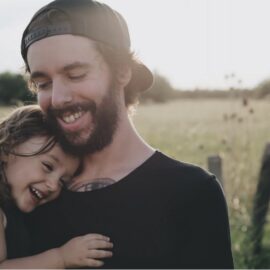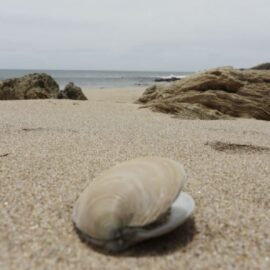

This article gives you a glimpse of what you can learn with Shortform. Shortform has the world’s best guides to 1000+ nonfiction books, plus other resources to help you accelerate your learning.
Want to learn faster and get smarter? Sign up for a free trial here .
What are the arguments for fate vs. free will? Are humans capable of choosing their own destiny?
Philosophers have been debating fate vs. free will for centuries. Some believe that people’s lives and choices are predetermined, while others believe that humans are responsible for their own actions.
While there’s still not a definitive answer, you should take a look at the below arguments about fate vs. free will to come to a conclusion yourself.
Arguments for Free Will
Free will is the belief that you can change the course of your life. There isn’t a greater force controlling your life, as you are in full control of your actions. To learn more about this concept in the fate vs. free will debate, keep reading.
Absurdism
Although The Myth of Sisyphus by Albert Camus claims that absurdists believe that the universe is meaningless, it doesn’t necessarily mean people don’t have free will. Rather, people have the freedom to choose how they confront the absurd (the contradiction between our needs and our reality that the universe and death are unknowable): suicide, a leap of faith, or embracing the absurd. Camus recommends the third option to exercise free will in your life.
Though Camus dismisses attempts to define the meaning of life, particularly religious ones, he also believes that life is the only thing that matters, as it’s how you experience consciousness, pleasure, and growth. Life may be given by a benevolent God, or it may lack any deeper meaning; either way, you should attempt to get as much out of it as you can before your inevitable death. How you choose to do so is determined by your own free will.
Getting the most out of life means living in the present and seeking out as many fulfilling experiences as possible. This doesn’t require you to constantly pursue new, exotic, or extreme experiences, but to take an interest in the world around you at all times and to make choices without being concerned with artificial limitations on behavior, such as morality or social stigmas. Camus argues that you should “feel” your life as intensely as if you’d been condemned to death the next day, and this one was the last you’d ever have—especially since, in a sense, everyone is condemned to death.
Liberalism
According to Homo Deus by Yuval Noah Harari, liberalism states that people have distinct internal voices and unique experiences, necessitating the need for personal freedom. Humans possess free will and should be able to express their perspectives in everything from art to politics. This form of humanism is considered the “orthodox” version and values individuals over political or religious institutions. According to liberalism, the voter and the customer are always right because their individual experience is what matters most.
Liberals believe that every human perspective matters. Because of this, they run into problems when valid, but differing perspectives clash. For example, when a Palestinian refugee asked German Chancellor Angela Merkel for asylum, Merkel told her that Germany didn’t have the resources to take them in. Both the girl and the chancellor had valid perspectives based on their experiences, and liberals debated Merkel’s decision.
Logotherapy
Viktor E. Frankl survived the concentration camps, and what he witnessed in them inspired the invention of logotherapy, a school of psychology that asserts that meaning is the driving force in human life, rather than pleasure.
As written in his book Man’s Search for Meaning, logotherapy focuses on taking action that aligns with your meaning in life. One method of doing this is the idea of looking back on your deathbed at your choices—would you be happy with them, and would you feel they fulfilled a purpose that was important to you?
It may sometimes feel like we’re completely at the mercy of our surroundings—especially in truly difficult circumstances—but Frankl doesn’t believe that’s the case. Humans have the freedom to make choices, no matter what the situation is.
Think about terminally ill people. It might seem like they have no choice, and this might be true medically—but they can still choose how to face their illness and what to do with the rest of their time. Sometimes, in circumstances like this, our freedom to choose how we approach something is the only freedom we have left.
- Frankl received a letter from a young invalid who had learned he had no medical options and would die soon–but he’d seen a movie where a man chose to face death with courage, and the invalid now saw his own chance to do the same.
In the concentration camps, prisoners had to continually choose whether to succumb to their horrible surroundings or preserve their inner selves, freedoms, and values.
- Frankl volunteered for medical duties at a concentration camp where there were typhus patients. Even though he risked getting typhus himself and dying, at least his death would have meaning in those circumstances: a doctor trying to save people.
At the very least, we have the freedom to choose how we view a situation, even one of hardship and suffering, and this freedom can’t be taken away from us by external forces
Logotherapy centers around an idea that was already important to Frankl and his psychotherapy career before he entered the concentration camps: the idea of a meaningful life. Our inner lives are built on things we find meaningful; our future goals are often built around what we find meaningful; and by making choices with our own free will, we affirm what we find meaningful.
Arguments for Fate
Fate, also known as destiny, is the idea that the course of events in your life is predetermined. You don’t have agency over your life, and future events are inevitable. Continue reading to learn more about why some people support this concept in the fate vs. free will discourse.
Neuroscience
For centuries, humans have been told that they possess free will, or the power to make their own decisions. Before the advent of brain scans and modern psychology, the simplest way to explain why someone would do something was to say, “They chose to.” It gave people authority over their destiny as they maintained total control over the choices they made.
However, Homo Deus says researchers have challenged the theory of free will through the use of neuroscience and brain mapping. The electrochemical processes in the brain are subconscious, meaning humans have no control over the neural system that creates thought or action. When external stimuli cause a reaction in the brain, the human body will naturally respond to the electrical and chemical interactions. For example, you don’t choose to get angry. Anger emerges naturally due to the body’s response to external stimulation.
These reactions can be either deterministic or random, but they’re never “free”:
- A deterministic reaction is the direct response of the brain to an external stimulus. For example, if you accidentally put your hand on a hot pan, the electrical signals in your brain will tell you to retract your hand.
- A random reaction is the result of an unpredictable event in the brain such as the decomposition of an atom or the misfiring of an electrical impulse. For example, your brain may accidentally cause you to shiver after randomly firing off an impulse.
While scientists can explain the electrochemical responses in the brain, there have been no major discoveries that support the concept of free will. In fact, evolutionary theory directly contradicts the concept of free will.
According to the theory of evolution, all animals have developed according to their genetic code and natural selection. Animals with stronger genes will make better “choices” because their genetic makeup instructs them to behave in a certain way, allowing them to pass their genes on to future generations.
Conversely, animals with weaker genes will make poorer “choices,” restricting them from passing along their genes. If animals, including humans, could freely choose their behaviors, then natural selection couldn’t exist because the choice would be separate from the genetic code, meaning that the actions of the animals would have nothing to do with passing along the strongest genes.
Determinism & Nihilism
Nihilism is the belief that life is meaningless and humans don’t have the free will to change that. The nihilism people suffer from today is a personal, private one that each individual suffers alone. After all, there can be little camaraderie in the idea that everything’s meaningless.
Man’s Search for Meaning calls our specific nihilism existential frustration. People generally get existentially frustrated in 3 different ways:
- They’re frustrated with existence in and of itself, specifically human existence.
- Frustration with everything it takes to exist as a human from moment to moment, i.e. “Why do I have to do all this?”
- They’re frustrated with the meaning of existence.
- Asking why humans exist at all and for what purpose, i.e. “Why are we here at all?”
- They’re frustrated with the meaning of their personal existence.
- Someone struggling to find the purpose and meaning of their own life, i.e. “What am I here for?”
Determinism is the belief that humans aren’t free to make active choices because everything’s been determined for us by biology or other external factors. This idea is more dangerous when paired with nihilism because it further reduces our power as individuals and makes it pointless to try to find meaning in our lives.
Biology
People who debate the fate vs. free will argument question if, at the end of the day, we still make a conscious choice about what to do. Professor of biology Robert Sapolsky (Behave) doesn’t think so—he believes that free will is an artificial construct we use to fill the gaps in our understanding of human behavior. If this is right, then, logically, someday we’ll close up all of those gaps and have no more need (or space) for the idea of free will.
While giving up the concept of free will is a disturbing notion, Sapolsky has some thoughts about why doing so would only change things for the better:
Dangerous people will still be arrested and—if needed—punished. Just because it’s not their “fault” doesn’t mean that dangerous people would be allowed to walk around freely. What it does mean is that justice would no longer focus on punishment, except as a means to discourage them from relapsing into their bad behavior. Instead, the focus would be on fixing whatever caused them to act that way in the first place.
People would still take credit for their good deeds. While it doesn’t make logical sense for people to feel pride in their actions if they didn’t “choose” those actions, it’s unlikely that we’ll ever completely separate ourselves from our egos. Sapolsky hopes that we’ll eventually use our concept of free will for harmless things—for instance, taking pride in your skill at a game, or your taste in clothing—instead of using it as a reason to judge and punish others.
Final Words
Likely, the existence of fate vs. free will never come down to one conclusive answer. What you believe though determines how you live your life. At the end of the day, you should believe something that makes you happier and helps you live a more fulfilling life.
Do you have something to add to the fate vs. free will debate? Let us know in the comments below!

Want to fast-track your learning? With Shortform, you’ll gain insights you won't find anywhere else .
Here's what you’ll get when you sign up for Shortform :
- Complicated ideas explained in simple and concise ways
- Smart analysis that connects what you’re reading to other key concepts
- Writing with zero fluff because we know how important your time is






